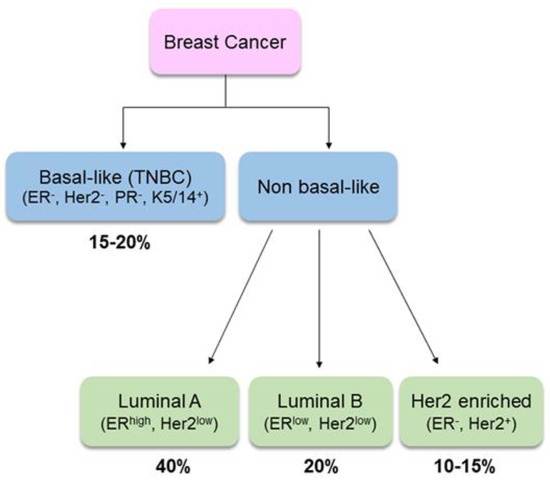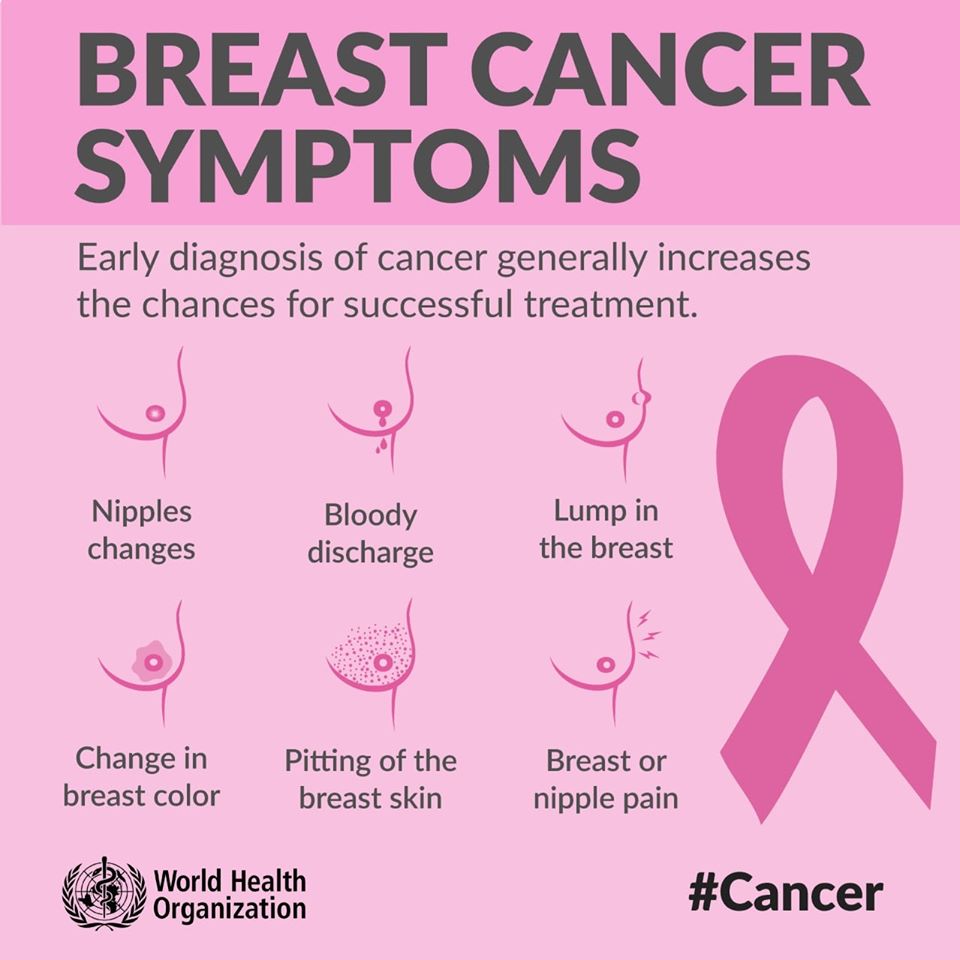Breast cancer is the second most common cancer worldwide and the most commonly occurring malignancy in women (22.9% of female cancers), with more than 2 million of new cases diagnosed in 2018; clinically, is a heterogeneous disease. Due to the complexity of biology, understanding the etiological heterogeneity of breast cancer sub-types will help in guiding treatment, predicting survival and informing prevention strategies.

Source: https://www.facebook.com/WHO/photos/4%EF%B8%8F%E2%83%A3-women-are-diagnosed-with-breast-cancer-every-minutebe-aware-of-breast-cancer/3452281184817240/
Several risk factors have been identified: non-modifiable factors include older age (>65 versus <65 years), genetic predisposition (including DNA mutations and family history), early menarche (<12 years), late menopause (>55 years), age at first pregnancy over 30 years, infertility and not having children, use of contraceptives, hormonal treatment after menopause, and no history of breastfeeding. Based on the most recent evidence, lifestyle recommendations were drawn up by the World Cancer Research Fund/American Institute for Cancer Research (WCRF/AICR) which are: (1) maintaining a healthy body weight, (2) being physically active, (3) following a fiber- and soy-rich diet, and (4) limiting the intake of fats (in particular, saturated fatty acids) may improve overall survival after BC diagnosis.

Figure: Breast cancer sub-types and relative prevalence. TNBC: triple negative breast cancer
Source: American Cancer Society. Breast Cancer Facts & Figures 2017–2018.
Dietary Factors in Breast Cancer Incidence and Recurrence
A healthy lifestyle, including weight management and high-quality diet, influences both the risk of developing BC and post-diagnosis outcomes. Mainly, sedentary lifestyle and poor dietary habits, such as excessive intake of high-caloric processed foods (rich in sugar and saturated fats), as well as low intake of healthy foods (containing ω-3 fatty acids, natural antioxidants, fiber) ultimately leads to obesity, contributes to increased adipose tissue inflammation, creating a favorable environment for breast cancer development and progression.
Based on studies, some foods and nutrients e.g., refined carbohydrates, saturated fats, junk foods, red and processed meats are considered potential risk factors for breast cancer. In contrast, fiber, ω-3 poly unsaturated fatty acids (PUFAs), vitamins C and E, fruits and vegetables have protective role by reducing oxidative stress and chronic inflammation.
Impact of Nutritional therapy on Women with Breast Cancer
Therapy usually runs 3-6 months and is often accompanied by side effects, including nausea, vomiting, loss of appetite, dry mouth and changes in taste or smell perception. Weight gain associated with changes in body composition with increase in fat mass and loss in muscle mass, also known as sarcopenic obesity, is the most common side effect occurring in women receiving chemotherapy. It should also be underlined that low BMI (<18.5 kg/m2) is associated with poor prognosis. Therapy-induced nausea has substantial impact on eating enjoyment, leading to inadequate energy and essential nutrient intakes, and resulting in malnutrition, reduced compliance with treatment regimens, reduced immunity, emotional distress and negative quality of life.
Thus, maintaining a healthy weight in BC women, by increasing physical activity and decreasing body fat, may be a reasonable intervention to improve prognosis. Beside limiting drug-induced side effects, some dietary interventions can also enhance therapeutic efficacy, thus improving the quality of life for cancer survivors e.g., Eicosapentaenoic (EPA) and docosahexaenoic (DHA) acids (ω-3 PUFAs); green tea, antioxidant vitamins and minerals such as vitamin-C, E & D, selenium, zinc, polyphenols, calcium etc.
Significant reduction in body weight, reducing fat (fats, oils and sweets), necessarily making healthier choices; consuming increased fruits and vegetables found to be potentially beneficial for women with breast cancer.
In recent past, the concept of nutritional support as part of a comprehensive cancer management program has gained increasing interest. Being overweight or obese is, indeed, associated with increased risk of developing certain forms of cancer. Evidence suggests that nutritional intervention as key factor in determining cancer prognosis, patient quality of life and, notably, efficacy of anti-tumor therapies. Among Breast Cancer patients, diet, physical activity and weight management, indeed, play a major role in improving survival. Non-communicable diseases like cancer, diabetes, obesity and heart disease are multi-factorial, and diet, although related, is only one of the risk factors together with lifestyle choices, genetic and environmental factors accounting for the patho-physiology of that particular disease. .




